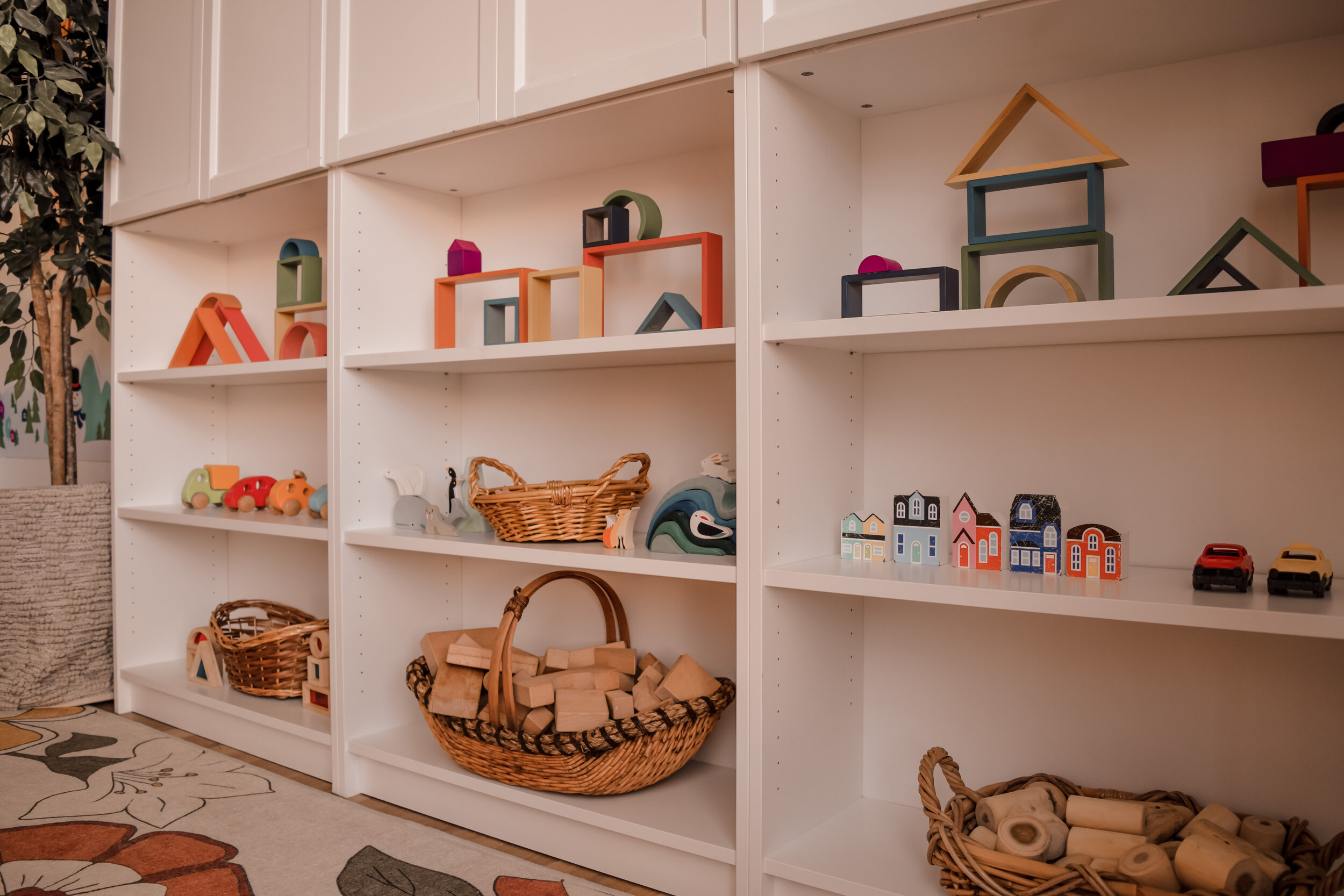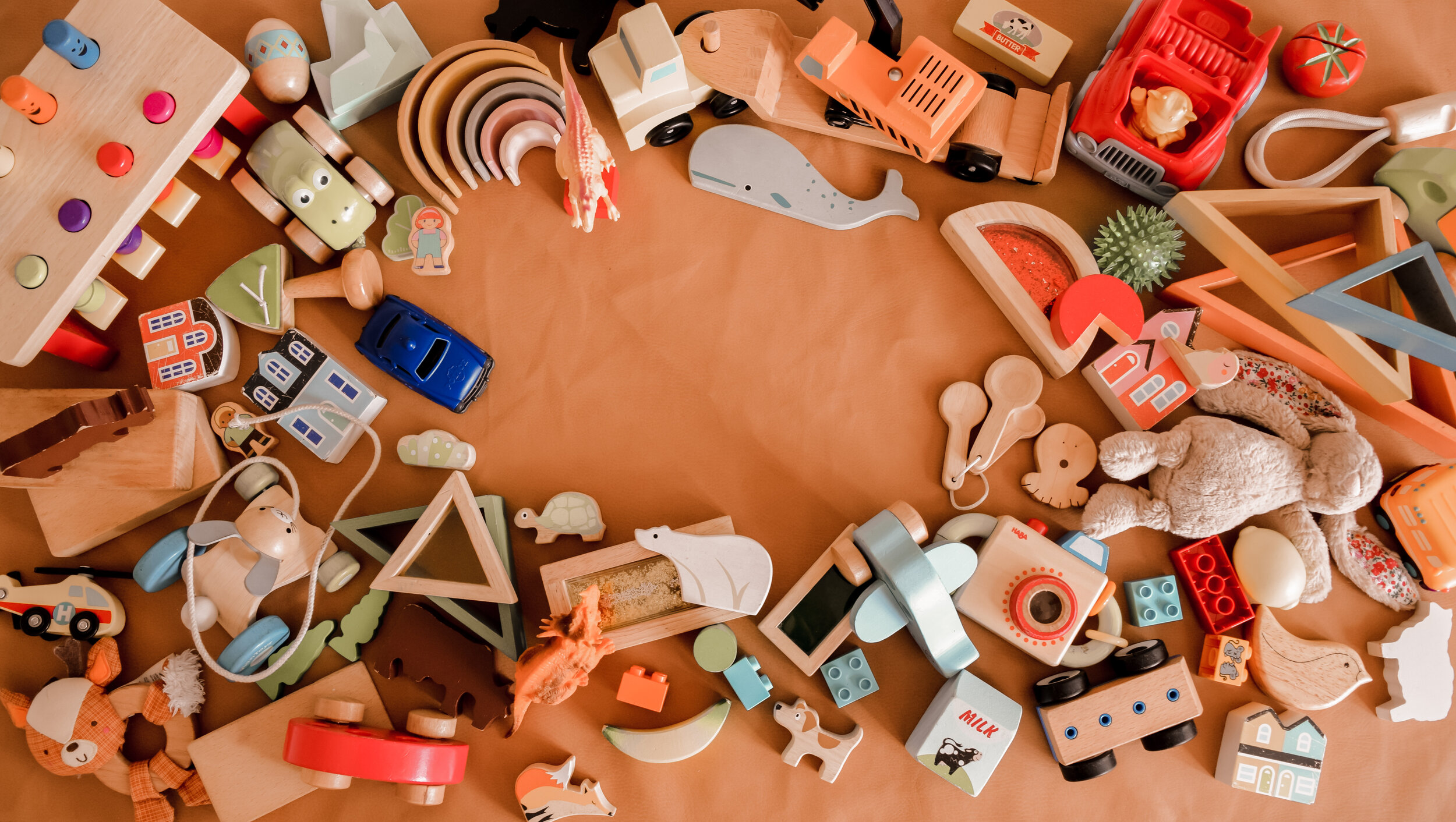
The best toys for young children encourage creative, independent play.
Open-Ended
Puzzles are great for fine motor development & problem solving, but a puzzle can only be taken apart and put together so many times before it becomes boring. For independent play, prioritize toys that don’t have any intended purpose. Your child should need to think creatively to make a toy fun.
A simple wooden block set is a must-have for young children. Also consider other options that might add to your child’s creative play such as simple vehicles, figurines, or miscellaneous nature treasures.
Battery-Free
The more the toy does, the less the child thinks. Battery operated toys rob children of the chance to develop creativity and problem-solving skills while playing. They also condition the young brain to expect a reward after each action (a light, a sound, a motion), which diminishes their ability to become self-motivated beings.
What’s the solution? Simply select toys that do nothing. Balls, musical instruments, pretend play props, loose parts, nesting toys, and building sets are all great options.
Safe & Durable
Wooden toys have gained in popularity over the last few years. You might have heard that they’re better for the environment, non-toxic, or simply prettier than plastic toys. This all may be true, but most importantly: quality wooden toys are built to last. Children are rough on toys, and toys should be built to last for generations.
Aim to choose durable toys as much as possible - they don’t necessarily need to be wooden! Just be sure to purchase from reputable brands that use non-toxic paints and finishes.
Shop Our Favorite Brands
How to Encourage Your Child to Play Independently
Declutter.
Gather every toy in your home and take a good look. Toss anything that's broken, made of cheap plastic, or requires batteries - as long as it isn’t a favorite.
Simplify.
Choose a place in your home to set up a simple play space - no playroom necessary. Ditch the toy bins and display a few carefully selected toys on a low open shelving unit.
Routine.
Schedule independent play into your family’s daily rhythm. Be consistent with your routine and your child will soon begin to look forward to their unstructured playtime.
Rotate.
If your child suddenly seems uninterested in playing, it’s probably time for a refresh. Swap unused toys with an item from storage, or simply switch up the display.










